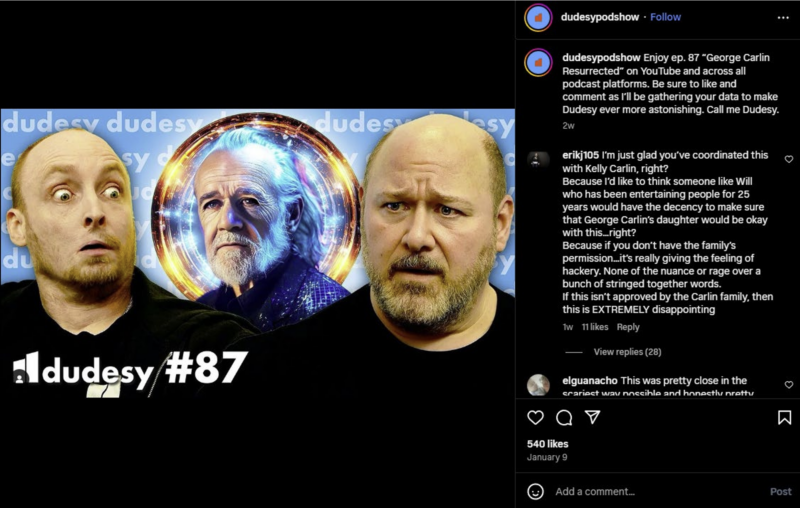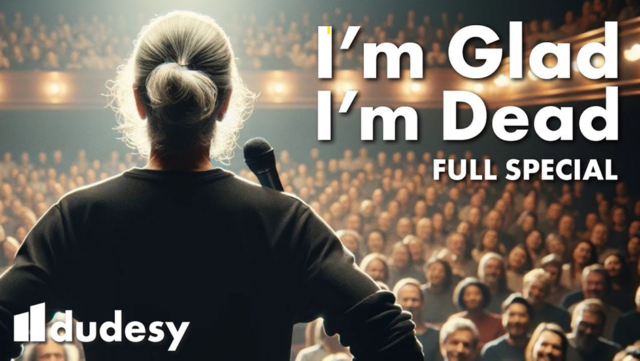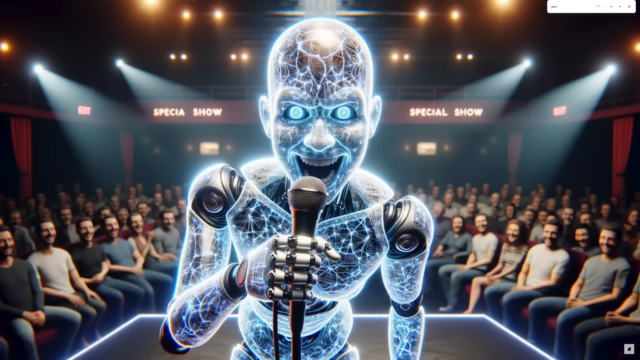Creators still face “name and likeness” complaints; lawyer says suit will continue.

The estate of George Carlin has filed a federal lawsuit against the comedy podcast Dudesy for an hour-long comedy special sold as an AI-generated impression of the late comedian. But a representative for one of the podcast hosts behind the special now admits that it was actually written by a human.
In the lawsuit, filed by Carlin manager Jerold Hamza in a California district court, the Carlin estate points out that the special, “George Carlin: I’m Glad I’m Dead,” (which was set to “private” on YouTube shortly after the lawsuit was filed) presents itself as being created by an AI trained on decades worth of Carlin’s material. That training would, by definition, involve making “unauthorized copies” of “Carlin’s original, copyrighted routines” without permission in order “to fabricate a semblance of Carlin’s voice and generate a Carlin stand-up comedy routine,” according to the lawsuit.
“Defendants’ AI-generated ‘George Carlin Special’ is not a creative work,” the lawsuit reads, in part. “It is a piece of computer-generated click-bait which detracts from the value of Carlin’s comedic works and harms his reputation. It is a casual theft of a great American artist’s work.”

The Dudesy special is presented as an “impression” of Carlin that the AI generated by “listening” to Carlin’s existing material “in the exact same way a human impressionist would.” But the lawsuit takes direct issue with this analogy, arguing that an AI model is just an “output generated by a technological process that is an unlawful appropriation of Carlin’s identity, which also damages the value of Carlin’s real work and his legacy.”Advertisement
At Senate AI hearing, news executives fight against “fair use” claims for AI training dataThe use of copyrighted material in AI training models is one of the most contentious and unsettled areas of law in the AI field at the moment. Just this month, media organizations testified before Congress to argue against AI makers’ claims that training on news content was legal under a “fair use” exemption.
“It’s a fictional podcast character”
Despite the presentation as an AI creation, there was a good deal of evidence that the Dudesy podcast and the special itself were not actually written by an AI, as Ars laid out in detail this week. And in the wake of this lawsuit, a representative for Dudesy host Will Sasso admitted as much to The New York Times.
“It’s a fictional podcast character created by two human beings, Will Sasso and Chad Kultgen,” spokeswoman Danielle Del told the newspaper. “The YouTube video ‘I’m Glad I’m Dead’ was completely written by Chad Kultgen.”
Regardless of that admission, Carlin estate lawyer Josh Schiller told the Times that the lawsuit would move forward. “We don’t know what they’re saying to be true,” he said. “What we will know is that they will be deposed. They will produce documents, and there will be evidence that shows one way or another how the show was created.”
Names and likenesses
A human writing a stand-up special that was merely inspired by Carlin’s work would likely not be subject to the same kind of potential copyright claims as the makers of an AI explicitly trained on that work. But even a fully human-written special would be guilty of unauthorized use of Carlin’s name and likeness for promotional purposes, according to the lawsuit.
“Defendants always presented the Dudesy Special as an AI-generated George Carlin comedy special, where George Carlin was ‘resurrected’ with the use of modern technology,” the lawsuit argues. “In short, Defendants sought to capitalize on the name, reputation, and likeness of George Carlin in creating, promoting, and distributing the Dudesy Special and using generated images of Carlin, Carlin’s voice, and images designed to evoke Carlin’s presence on a stage.”Advertisement

While the special doesn’t present images or video of Carlin (AI-generated or not), the YouTube thumbnail for the video shows an AI-generated image of a comedian with Carlin’s signature gray ponytail looking out over an audience. The lawsuit also cites numerous social media posts where Carlin’s name and image are used to promote the special or the Dudesy podcast.
That creates an “association” between the Dudesy podcast and Carlin that is “harmful to Carlin’s reputation, his legacy, and to the value of his real work,” according to the lawsuit. “Worse, if not curtailed now, future AI models may incorrectly associate the Dudesy Special with Carlin, ultimately folding Defendants’ knockoff version in with Carlin’s actual creative output.”
Anticipating potential free speech defenses, the lawsuit argues that the special “has no comedic or creative value absent its self-proclaimed connection with George Carlin” and that it doesn’t “satirize him as a performer or offer an independent critique of society.”
Kelly Carlin, the late comedian’s daughter, told The Daily Beast earlier this month that she was talking to lawyers about potential legal action. “It’s not his material. It’s not his voice,” she said at the time. “So they need to take the name off because it is not George Carlin.”
“The ‘George Carlin’ in that video is not the beautiful human who defined his generation and raised me with love,” Kelly Carlin wrote in a statement obtained by Variety. “It is a poorly executed facsimile cobbled together by unscrupulous individuals to capitalize on the extraordinary goodwill my father established with his adoring fanbase.”
The lawsuit asks a court to force Dudesy to “remove, take down, and destroy any video or audio copies… of the ‘George Carlin Special,’ wherever they may be located,” as well as pay punitive damages.
Update: Added information about a spokesperson admitting the special was human-written.




